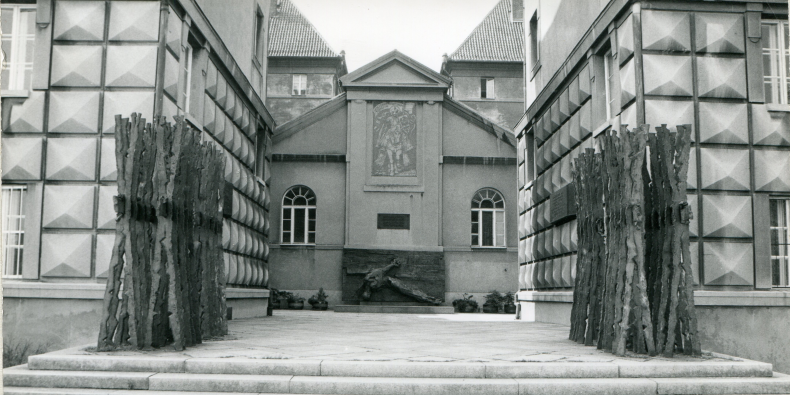Masaryk University will commemorate the tragic events of November 1939 and the closure of Czech universities by the Nazis at a commemorative gathering of the MU academic community on Monday 13 November. At the Kounic Hall of Residence Anti-Nazi Resistance Memorial, Rector Martin Bareš and the deans and vice-deans of all ten faculties of Masaryk University will pay tribute to all those who were imprisoned, tortured and executed.
“We have been organising the commemorative gathering of the academic community in its current form since 2019 because we consider the Kounic Hall of Residence to be one of the most important places in modern Czech history, the history of Brno and the history of Masaryk University. The tragic story of the Kounic Hall of Residence during the war and the fate of the people connected with it is a memento and warning. It is necessary to continue reminding people of the story of this place. The Kounic Hall of Residence also speaks strongly to us and to today and its message is clear: Evil, fanatics and perverse ideologies are not to be appeased. They only lead to injustice and terror and represent the mortal enemy of liberty and, consequently, human life itself,” said MU Chancellor Marián Kišš.
The ceremony at the site of the former Nazi execution site will begin at 4:30 p.m. All the victims and heroes can be honoured by MU students, staff and the general public by symbolically lighting a candle or laying flowers. The programme will also include a performance by the Masaryk University Choir.
The commemorative event is being held in the Kounic Hall of Residence for the fourth time this year. “The students who now stay in Kounic Hall of Residence spend their time in the same building where the Gestapo made a political prison during World War II. In January 1940, the Kounic Hall of Residence became a prison and interrogation facility where arrested members of the anti-Nazi resistance were brought from all Gestapo units in Moravia. Between January 1940 and April 1945, more than 35,000 anti-fascists, mainly patriots and resistance fighters from Moravia, but also from Bohemia and Slovakia, passed through the Kounic Hall of Residence. Men and women of all professions and social classes were among the executed. I want to mention two victims in particular. In 1942, the Nazis executed a member of the resistance, Jaroslav Mezník, the vice-president of the Subcarpathian Ruthenia province of the First Czechoslovak Republic and later historically the last provincial president of Moravia. Shortly before the liberation of Brno, in April 1945, a boy of under 11 years, Miloš Prudil, the son of a forest worker from Karlov near Prosetín, was executed here along with his parents for aiding the partisans,” said historian Jan Jandl, who together with Alena Hejl also works as a guide at the Kounic Hall of Residence.
This tragic period of Czech history is commemorated in the Kounic Hall of Residence by a permanent exhibition in the Memorial Hall, established in 1984 by two former prisoners and survivors, František Vašek and Josef Styx. Visitors to the Memorial Hall can view documents and photographs not only from the Kounic Hall of Residence, but also from other Nazi prisons and concentration camps, illustrating the saddest period in Brno's history. In recent years, the Kounic Hall of Residence Memorial has also participated in the Brno Museum Night and Open House Brno projects. If you are interested in visiting the Kounic Residence Hall, please contact Jan Jandl at This email address is being protected from spambots. You need JavaScript enabled to view it. or 732 162 185.
